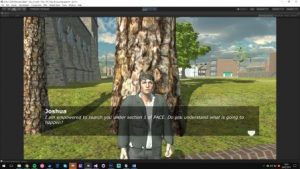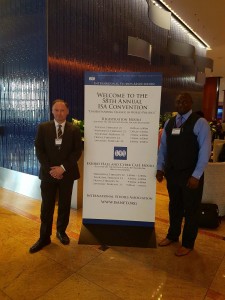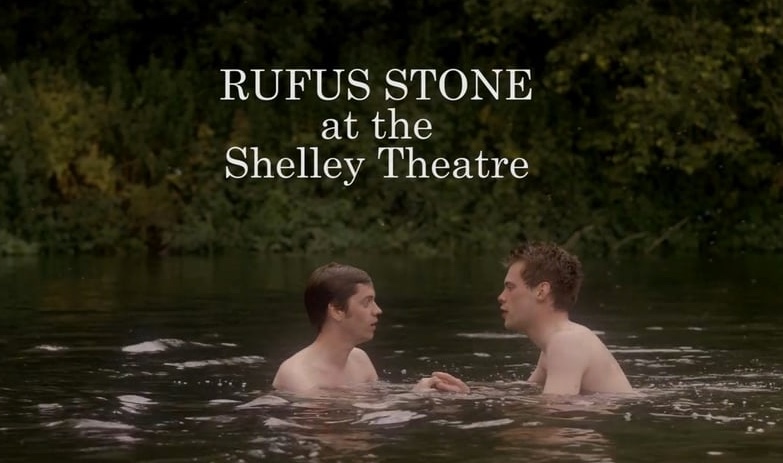The BBC 2 series “Meet the Lords” could not have been better timed. The House of Lords has flexed its muscles on the Article 50 Bill and this week’s episode coincided with them passing an amendment to the Higher Education and Research Bill (HE Bill) that breaks the link between the Teaching Excellence Framework (TEF) and fees. Since then another amendment has been passed that would change the nature of the TEF, and bring it under Parliamentary scrutiny.
It would be easy to dismiss these (as some have done) as acts of rebellion by a non-elected chamber that is in the case of the HE Bill, representing vested interests in the face of a genuine government attempt to reform a sector that is badly in need of it. The Department for Education could be forgiven if they had thought that the HE Bill was nearly home and dry. They had published a long list of amendments which had been largely welcomed by the sector. The TEF does not require Parliamentary approval. Universities UK and GuildHE, amongst others, had expressed support for the HE bill as amended and expressed support for the TEF – opposing the addition of more detail as it would reduce flexibility in future negotiations on the detail. But the House of Lords did not agree – they have not sought to add more detail in the TEF, but to change its nature completely. Reading the debates, it is clear that members of the House of Lords, like most of the sector, generally support the objectives of TEF in bringing focus on the quality of education and student outcomes. They support the provision of more and better information about universities for applicants and others. They, like many in the sector, also generally support an inflationary increase in fees.
In the latest amendment, the provisions for the TEF in clause 26 have been removed and the new clause instead requires the Secretary of State to bring forward a scheme to identify whether an institution meets or fails to meet expectations based on quality standards but it “must not be used to create a single composite ranking of English higher education providers”. The arguments are neatly summarised by Lord Lucas: “Bronze will be seen as failing because these universities will be marked out as the bottom 20%. This is just not necessary. We have succeeded, in our research rankings, in producing a measure of sufficient detail and sophistication for people to read it in detail. It produces quite marked differences between institutions, but nobody reads it as a mark of a failing institution. It is information, not ranking…”.
An earlier amendment removed the differentiation between fees based on different ratings. The speeches in the House of Lords demonstrate that they are opposed to this link for different reasons, for example:
- Baroness Deech “If we detach fees from gold, silver and bronze, we stand a chance of increasing social mobility under the amendment. If we do not, social mobility will be frozen and ghettoisation will increase.”
- Baroness Wolf of Dulwich: “I want to cite three groups of academics ….all of which feel, as do students, that in their current state the TEF metrics are not up to the job of determining fee levels and that, until we are sure that we have valid and reliable measures, we should not do this.”
- Lord Lipsey : “… what seems knocking on bizarre is to plough on with bringing in this link between fees and the TEF before we have got the TEF right….The Government would give themselves the best chance of proving themselves right and the sceptics wrong if they gave time for the TEF to settle down before they brought in the fees link.”
- Lord Kerslake: “My second reason for not making the link is that the TEF rating will relate to the university, not the subject or course. We will not see subject-level ratings until 2020 and yet we know that it is perfectly possible to have a mediocre course in an otherwise excellent university, and indeed vice versa. It can be argued that the TEF ranking gives an indication of the overall student experience at a particular institution, but the variation which so obviously exists within institutions makes that argument quite unconvincing.”
Except for the subject level fee point (which has not become a topic of debate yet), these are all arguments that were made by the sector in responding to the Green Paper and the TEF consultation. These are all things that we have continued to raise as we discuss the implications of subject-level TEF.
So as it stands, the TEF has lost both of its “incentives” – aka its carrot and its stick, which were both in the form of the impact on fees and reputation. It is not at all clear what will happen next – some ideas are given in this Wonkhe blog. In blogs on the Times Higher Education, Maddaleine Ansell of the University Alliance and Sorana Vieru gave very different perspectives.
So what compromise could there be to address all the concerns and yet still preserve the positive aspects of the TEF – i.e. the increasing focus on education and outcomes? I go back to BU’s response to the Green Paper, when we said that the TEF should model itself on the REF.. It should celebrate excellence wherever it is found, there should not be a link with tuition fees and there should be no forced ranking. To achieve that now, a remodelled TEF could include the following features:
- no link to fees
- have two rather than three levels of award – perhaps indicating good and outstanding. The last category is those who fail their quality assessment and don’t qualify for TEF.
- take a different approach to benchmarking that does not force differentiation
- include a place for commendations
I am not convinced by the argument that no-one would participate in the TEF without the direct financial incentive. That does not hold true for the REF. The REF has increased the focus on impact and had a beneficial impact on research. (We have some reservations about the changes proposed in the latest REF consultation, but that is a separate issue.) The concerns about the TEF would be mitigated substantially if the Olympic rating system and the link to fees were dropped. The sector would be able to engage in a much more constructive debate about subject-level TEF.
The TEF does not need to be thrown out completely – but this is an opportunity to go back to where this started from and ensure that the TEF brings focus on the quality of education and student outcomes.






 The call for participants for the 2017 ESRC Festival of Social Sciences will be opening on 29th March. The festival this year is taking place from the 4th to the 11th of November with events taking place across the BU Campus and in the local area. We will be looking for applications from social sciences researchers to run workshops/exhibitions/lectures/activities (we’re open to ideas) open for attendance for the wider public.
The call for participants for the 2017 ESRC Festival of Social Sciences will be opening on 29th March. The festival this year is taking place from the 4th to the 11th of November with events taking place across the BU Campus and in the local area. We will be looking for applications from social sciences researchers to run workshops/exhibitions/lectures/activities (we’re open to ideas) open for attendance for the wider public. Share your research over a pint!
Share your research over a pint!



 A Gala Celebration of the 5th Anniversary of the Premiere of RUFUS STONE took place at the historic Shelley Theatre in Boscombe (Bournemouth) on the 7th of November, as part of ESRC’s Festival of Social Science. The Event was organized at the Shelley by FH&SS’s Lee-Ann Fenge and Kip Jones.
A Gala Celebration of the 5th Anniversary of the Premiere of RUFUS STONE took place at the historic Shelley Theatre in Boscombe (Bournemouth) on the 7th of November, as part of ESRC’s Festival of Social Science. The Event was organized at the Shelley by FH&SS’s Lee-Ann Fenge and Kip Jones.










 FHSS academics teaching in Nepal
FHSS academics teaching in Nepal New weight change BU paper
New weight change BU paper One week to go! | The 16th Annual Postgraduate Research Conference
One week to go! | The 16th Annual Postgraduate Research Conference Geography and Environmental Studies academics – would you like to get more involved in preparing our next REF submission?
Geography and Environmental Studies academics – would you like to get more involved in preparing our next REF submission? Congratulations to three former BU staff
Congratulations to three former BU staff MSCA Staff Exchanges 2024 Call – internal deadline
MSCA Staff Exchanges 2024 Call – internal deadline Applications are now open for 2025 ESRC Postdoctoral Fellowships!
Applications are now open for 2025 ESRC Postdoctoral Fellowships! Horizon Europe – ERC CoG and MSCA SE webinars
Horizon Europe – ERC CoG and MSCA SE webinars MaGMap: Mass Grave Mapping
MaGMap: Mass Grave Mapping ERC grants – series of webinars
ERC grants – series of webinars